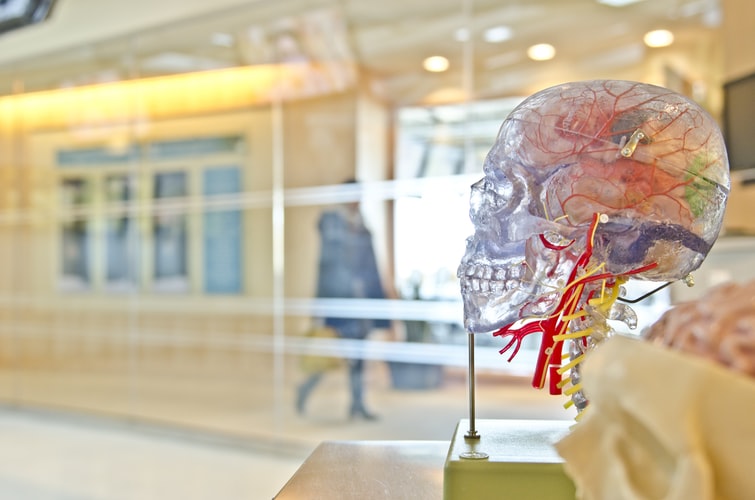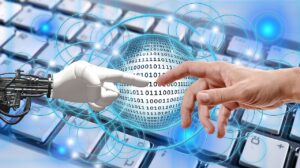For decades now, new advancements in technology have impacted the way people live, work and play. With machine learning impacting almost every aspect of modern life, it was only a matter of time before it was implemented in clinical settings.
While the thought of robots leading surgeries or app centered data keeping and treatment plans may send shudders through some, these advancements are for the better. In fact, automating processes in the healthcare industry will positively affect patients and workers.
The Rise of AI in Healthcare
Technological advancements won’t replace healing professionals, instead these measures will act as support mechanisms. All of which results in a safer and more complete experience for a patient.
With evidence indicating that artificial intelligence (AI) performs on par, or better than humans, it’s no surprise that it is being used in many clinical settings. From intelligent personal health records to deep learning to diagnosing diseases, the possibilities are limitless.
Described as the ability of a machine to learn the way a human learns, thinking networks in this sector impact everything from how information gets collected, analysed and developed to how a patient is treated. A reinvention and reinvigoration of modern healthcare.
As the demand for healthcare services continues to rise, new approaches need to be considered and adopted. By utilising the help of smart networks, physical and mental care changes from a largely reactive business to a proactive one.
These developments didn’t just happen overnight. For decades now, new opportunities within the data science realm have been researched. So, any new intelligence developments are the result of increased computer processing speed and larger data collection libraries.
Why Is Implementing AI in Healthcare Important?
Health industry spending is simply not keeping up with demand. This means that without structural and transformation changes, the system will struggle to remain sustainable. In an overworked, understaffed and backward system, sick people suffer. They are either afforded sub-optimal care or are unable to access even the most basic of care.
As these thinking networks can lead to better care outcomes, all the while improving productivity and efficiency of care, its widespread implementation has never been more important. Working to, among other things, minimise time spent on routine or administrative tasks, technology gives doctors the freedom to do the thing they are best at- care for others.
Utilising the reasoning process and performative tasks of humans, a computerised thinking system essentially rids the medical industry of perceived barriers. With clinical operations, drug development, surgery and information management computerised, costs go down and most importantly resource- time is maximised.
Real Time Examples
In many clinical settings across the globe, automated thinking systems are being utilised. While once thought of as futuristic, smart elements like robotics are present in hospitals around the world and not just in sci-fi movies, highlighting how important innovations are to real life.
Intelligent and Accurate Diagnostic Apps
Smart structures with advanced machine learning support are what is known as intelligent apps. Accessing details, advanced techniques and featuring greater processing power, these intelligent apps allow for deep learning. This helps the app differentiate between relevant and irrelevant information, helping to identify symptoms and quickly diagnose illness.
AI Robot-assisted Surgery
Today, robots are used to assist with everything from minimally invasive procedures to open heart surgery. Equipped with cameras, mechanical arms and surgical instruments, robots help surgeons perform precise procedures. Offering a 3D magnified view of the surgical site, robotics help doctors see things not perceptible to the naked eye.
Dispensing Precision Medication
The term precision medication refers to dispensing the correct treatment depending on a patient’s characteristics and behaviours. Precision medication is able to be performed thanks to expert powered fact systems that store and organise a large amount of statistics in order to draw meaningful conclusions and predictions.
Transforming Radiology
Machine learning is transforming radiology with the help of a deep-learning algorithm that can reliably diagnose neurological diseases. The AI program scans patient results, uses modernized medical information sharing methods, and compares them with tens of thousands of images to identify potential lesions and any other abnormal regions in the brain.
The Future of Medicine – Embracing AI
The rise of leading edge technologies in the medical sector has been a long time coming. With more patients needing access to these services than ever before, doctors and nurses need help.
In order to make the most of dwindling resources, implementing artificial intelligence into everyday practices is not only a reasonable decision, but also a beneficial one. In fact, embracing tech in this profession will make the work of medical professionals easier.
By helping a doctor focus on well-being management rather than disease treatment, these leading edge techniques will work to ensure earlier diagnosis, tailored treatments and more efficient follow ups. As a result, individuals will be able to enjoy better than ever health.





